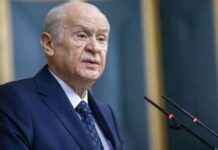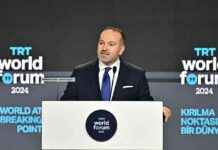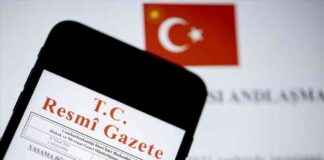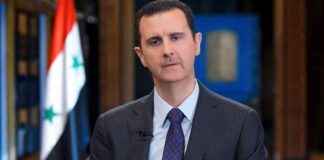As the economic growth slows down in the US, the high cost of caring for children and the elderly is pushing women out of the workforce, shaking family budgets, and forcing professional caregivers into low-wage jobs.
It is no doubt that millions of families in the country are struggling. As the economy continues to be a key issue in this presidential election, Democratic candidate Kamala Harris and Republican candidate Donald Trump are sharing their proposals to reduce costs by offering different views on the concept of family.
One common ground for both candidates is their support for an expanded child tax credit.
Last week, Vice President Kamala Harris, who accepted the Democratic nomination, signaled plans to enhance the goals of President Joe Biden’s administration to make child care and home care for the elderly and disabled more affordable. Biden is trying to allocate billions of dollars from tax revenues to this issue.
Although Harris did not formalize any of Biden’s current plans on this issue into an official policy platform, she mentioned in a speech earlier this month that her vision includes raising the child tax credit.
Former President Donald Trump, on the other hand, refused to answer questions on how he would make child care more affordable, despite it being a topic addressed during his administration.
Trump’s running mate, Ohio Senator JD Vance, has a long history of promoting policies to encourage Americans to start families and has put forward ideas such as granting parents the right to vote on behalf of their children.
This month, Vance said he wants to increase the child tax credit to $5,000. However, he opposes government spending on child care, arguing that many children benefit from having a parent at home as a caregiver.
The candidates’ focus on care support could play a significant role in appealing to suburban women in swing states, seen as the key to victory in November.
Women across the country provide two-thirds of the $1 trillion worth of unpaid care work and are disproportionately affected when families cannot find affordable care for their children or aging parents.
The cost of care is an urgent issue because child care prices are rising faster than inflation.
Kamala Harris: “Increase the child tax credit”
In her speech at the Democratic National Convention, Harris first shared her own experiences with child care. Raised by Shyamala Gopalan, a single mother who worked long hours as a breast cancer researcher, Harris highlighted the importance of community support, including Mrs. Shelton, who ran the daycare downstairs and served as a second mother figure.
As Vice President, Harris has been working behind the scenes in Congress on Biden’s proposals for national paid family leave, universal pre-K, and billions of dollars in investments in child care to ensure families do not pay more than 7% of their income for child care.
She also announced actions to reduce additional payments for families using federal child care vouchers and to increase the wages of home health aides financed by Medicaid.
As a senator, Harris was also part of efforts to provide more working rights for domestic workers, including nannies and home health aides, who could be vulnerable to exploitation.
This month, during a speech at a university in North Carolina, Harris summarized her campaign’s economic agenda, which includes raising the child tax credit to $3,600 and providing $6,000 for families in the child’s first year.
Harris said, “This is a critical year for a child’s development, and costs can really add up for young parents who need to buy essentials like diapers, clothes, car seats, and more.”
The selection of Kamala Harris as the running mate has generated optimism among supporters as she continues the legacy of Minnesota Governor Tim Walz, who introduced paid leave and child tax credit programs.
Donald Trump’s lack of details on child care
For voters struggling with the high cost of child care, Trump offered very few solutions. During a presidential debate in June, CNN moderator Jake Tapper asked Trump twice what he would do to reduce child care costs, but Trump avoided answering the question both times.
The Republican candidate’s campaign platform is similarly quiet on this issue. However, campaign messages address the long-term care costs for the elderly by stating that Republicans will support free family caregivers through tax credits and reduced bureaucracy.
This silence marks a change from his first campaign, where Trump proposed paid parental leave but faced criticism for excluding fathers.
When Trump took office, he requested $1 billion for child care and, at the insistence of his daughter and policy advisor Ivanka Trump, a parental leave policy. Congress rejected both proposals, but Trump succeeded in doubling the child tax credit and creating paid leave for federal employees.
In his 2019 State of the Union address, Trump said, “I am proud to be the first president to include a nationwide paid family leave plan in my budget so that every new parent has the chance to bond with their newborn child.”
However, this year, there are signs that Trump’s administration, if elected, may not follow the same agenda, including his selection of Vance as the running mate.
Vance, before joining the Senate in 2021, wrote a column for the Wall Street Journal opposing billions of dollars in investments in child care to make it more affordable for families. He and other authors argued that expanding child care subsidies would lead to “unhappier, unhealthier children” and that having fewer mothers contribute to the economy could be a valuable trade-off.
In addition to embracing “family-friendly” policies, Vance labeled people who do not have children or do not want children as “sociopaths.”
Vance once mocked Harris and other rising Democratic stars as “childless cat ladies.” Harris has two stepchildren who call her ‘Momala’ and does not have a cat.
While there are no details on the new care policies, Trump believes that families will ultimately get a better plan under his administration.
The Trump-Vance campaign attacked Harris’ economic record and pointed out the recent inflation, saying that Biden’s policies have made things even harder for families.
Campaign spokesperson Karoline Leavitt said, “Harris…has proudly and repeatedly celebrated her role as the chief pilot of Bidenomics” and added, “Essential needs like food, gas, and housing are less affordable, unemployment is rising, and Kamala doesn’t seem to care.”





















